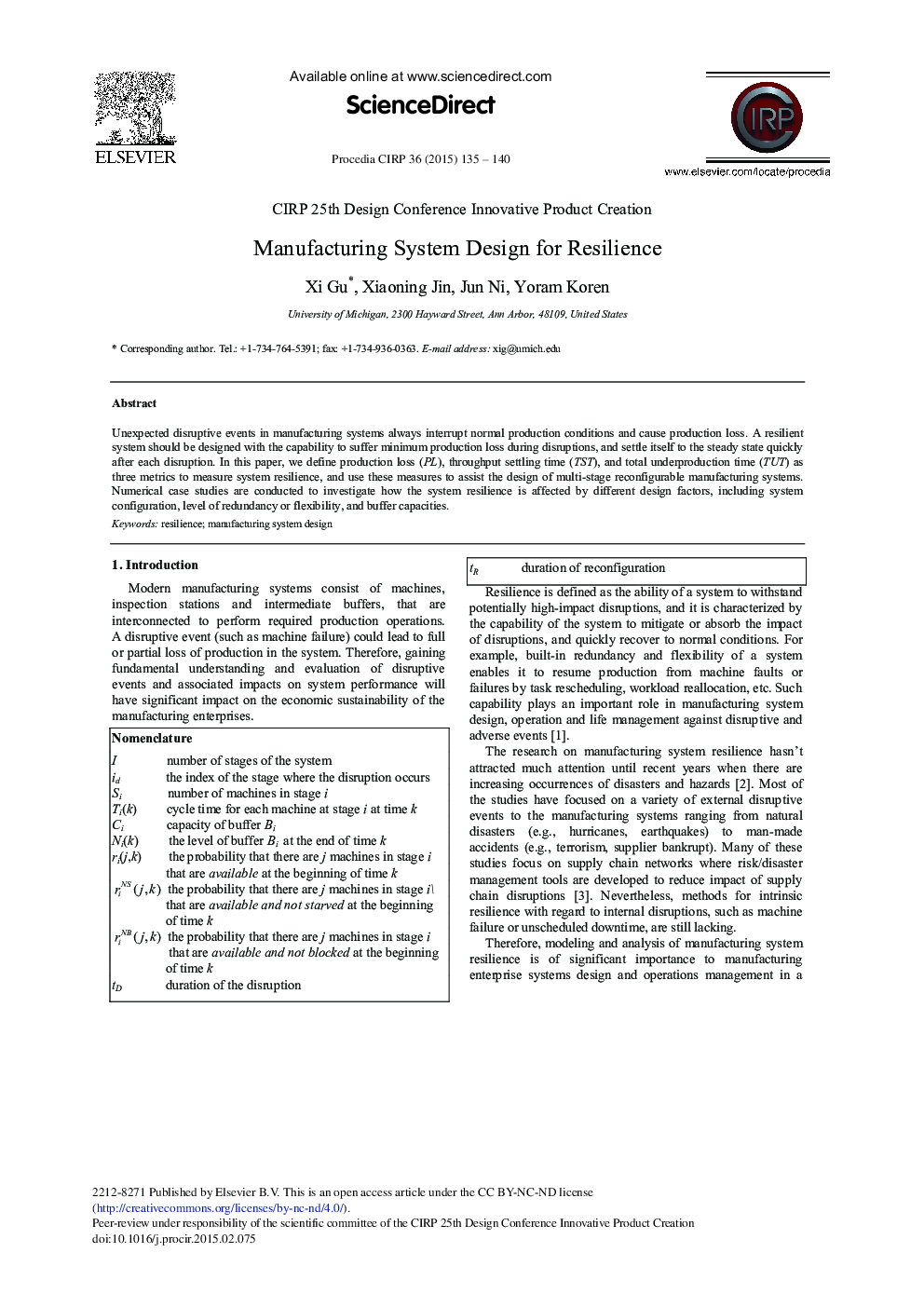| Article ID | Journal | Published Year | Pages | File Type |
|---|---|---|---|---|
| 1699406 | Procedia CIRP | 2015 | 6 Pages |
Unexpected disruptive events in manufacturing systems always interrupt normal production conditions and cause production loss. A resilient system should be designed with the capability to suffer minimum production loss during disruptions, and settle itself to the steady state quickly after each disruption. In this paper, we define production loss (PL), throughput settling time (TST), and total underproduction time (TUT) as three metrics to measure system resilience, and use these measures to assist the design of multi-stage reconfigurable manufacturing systems. Numerical case studies are conducted to investigate how the system resilience is affected by different design factors, including system configuration, level of redundancy or flexibility, and buffer capacities.
